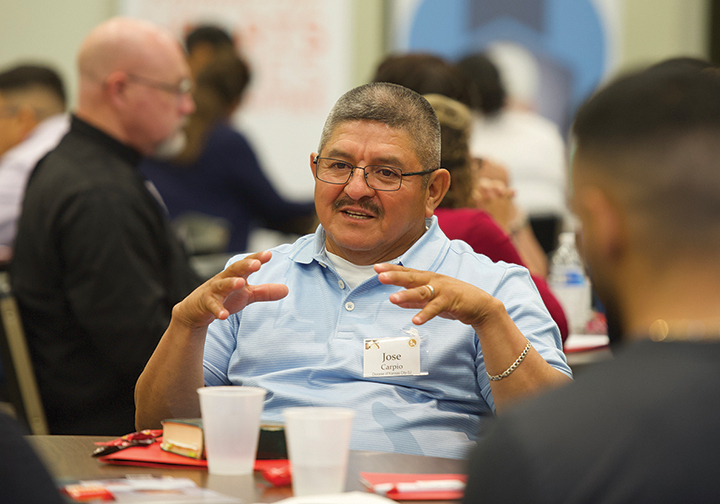
by John Paul Cardenas
Special to The Leaven
KANSAS CITY, Kan. — From June 23 to 25, Hispanic leaders from a four-state area gathered at Savior Pastor Center here for the Hispanic regional Encuentro — not only to fortify themselves and discover different strategies to grow in their faith, but to seek those same benefits for others.
The Archdiocese of Kansas City in Kansas’ representative team hosted the meeting of Region IX — comprised of the dioceses and archdioceses of the states of Iowa, Kansas, Missouri and Nebraska — at the pastoral center.
Archbishop Joseph F. Naumann celebrated Mass for the gathering on June 24.
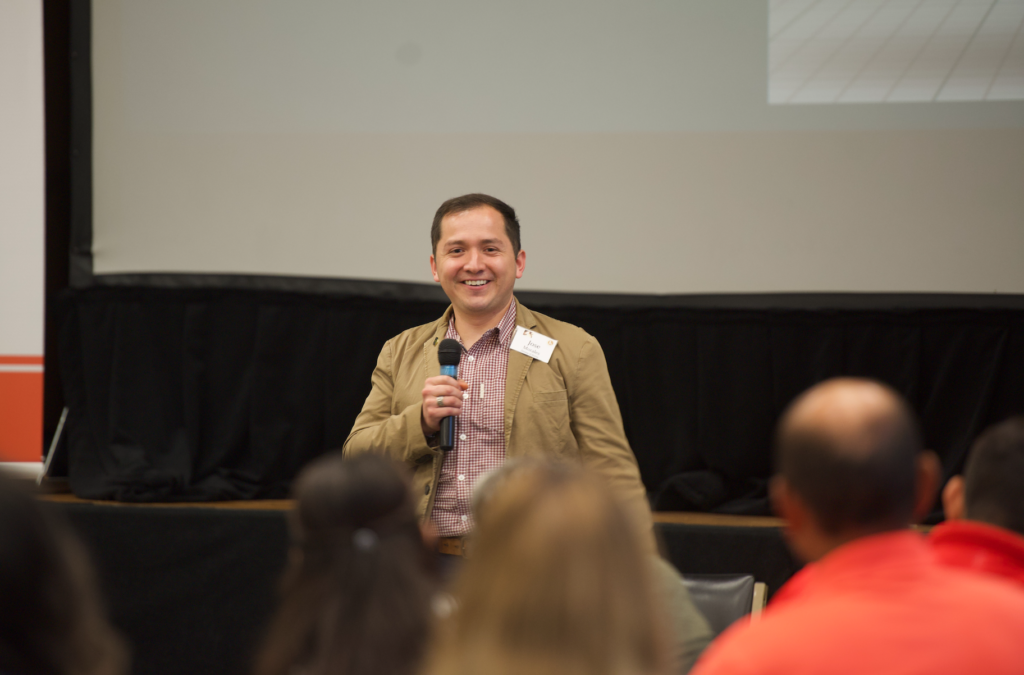
The regional Encuentro offered participants a chance to compare experiences, freshen their knowledge of best practices and grow in their understanding of the diverse needs of the region. Moreover, it gave leaders here the benefit of the regional representatives’ input as they work to develop a more robust Hispanic ministry plan for the archdiocese.
One of the areas of particular focus was the young church.
Guest presenters Jessica Pancho and Jose Morales said they believe there is a dire need in the youth of the church for spiritual guidance. Providing that guidance requires better education of the staff and leadership of the parishes.
“We recognize that we are not only here to serve you, but the teens as well,” Morales told the gathered educators.
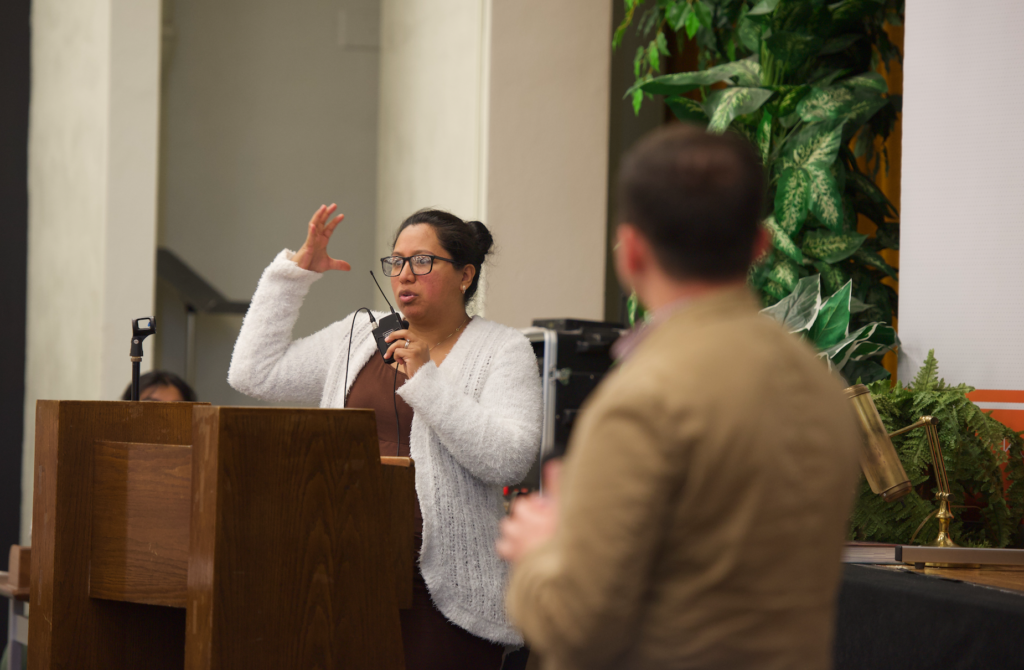
While the presenters admitted there was a wide range of topics that needed to be addressed, they gave the participants two practical strategies to approach the juvenile church.
First, said Morales, at the age of 12 or 13 years, a young person’s interest in the faith can sometimes get lost. That divorce between society and faith has a grave impact on the church.
“When the youth are transformed, they love their faith and they want to share what they learn,” said Pancho. Finding new ways to inspire teens can be very difficult, but it starts with small and simple steps.
“We have many different resources — classes, videos and teachings — [but] it is difficult to be effective if there isn’t a testimony,” said Morales. “But this isn’t just about what happened when you were 18 or 20 years old. . . . You are a living testimony! How does Jesus continue to transform your life?”
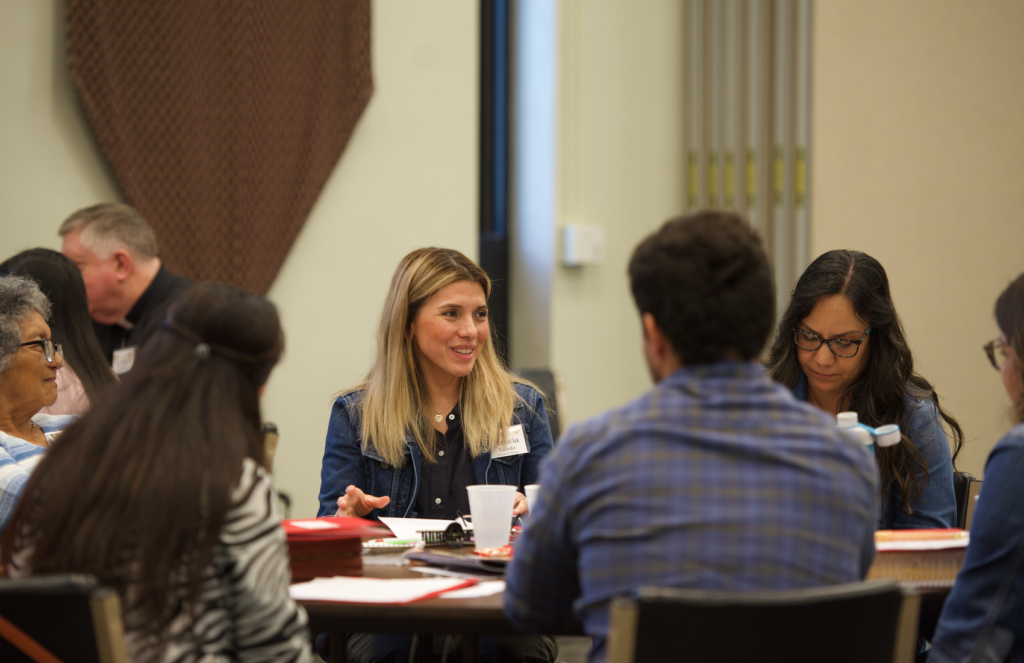
Pancho also touched on the point of quality over quantity, claiming that faith cannot be about statistics.
“We cannot reduce people to numbers,” she said. “Statistics were made for us, we were not made for statistics.
“Instead, the most important thing about our faith is the quality, and that will attract more people. Helping other young teenagers through those difficult moments really allows them to feel more than just a number or as if navigating their faith is something they must do in mass quantities. Rather, making it personal will make a bigger impact on their lives.”
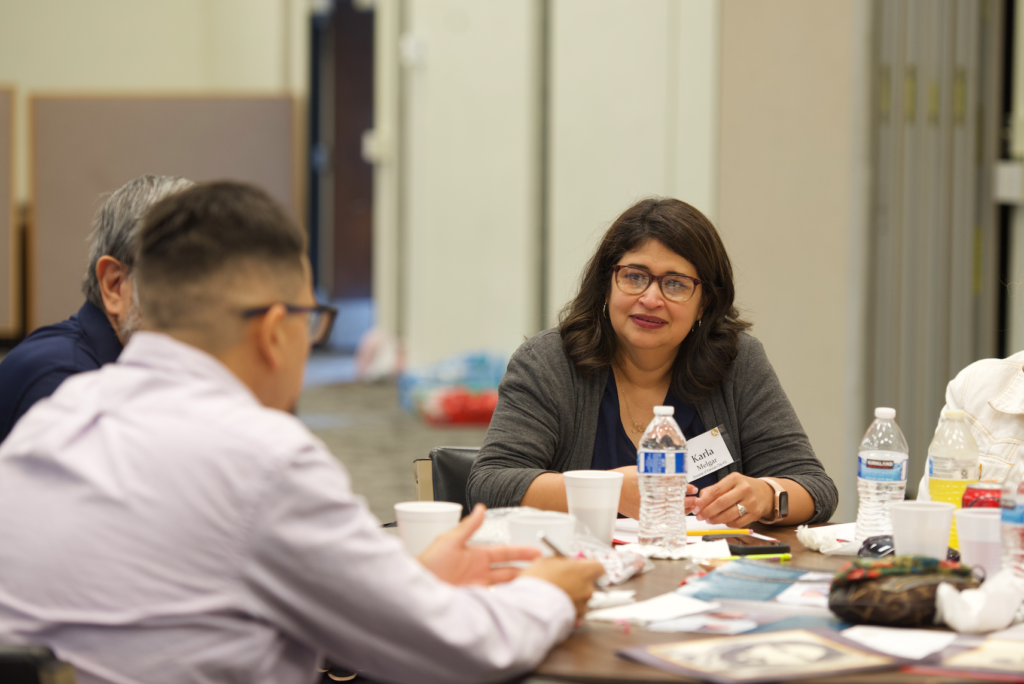
Taking a break for discussion, attendees were able to talk among themselves and bounce ideas off of each other as to how they could help each other and the youth in their parish.
“I think it is crucial that we begin at the root of it all — the parents and their faith,” said a parishioner from the Archdiocese of St. Louis. “We can only educate our children as much as we educate ourselves.”
Morales also stressed the incorporation of the sacraments in planning for teen events.
“Remember that we are nourishing their body and soul, not just their minds. God himself, through the sacraments, gives himself to us through body and blood,” he said. “With the sacraments comes the transcendentals — beauty, truth and goodness — and you can’t have one without the other two.”
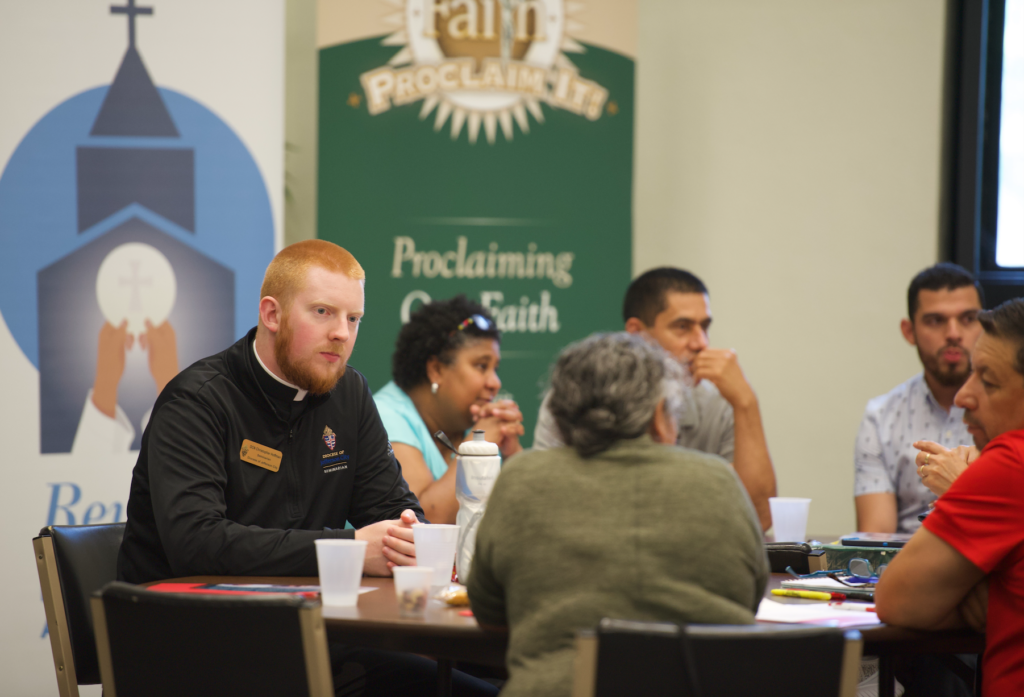
Pancho later opened up about her passion for this important subject.
“I have kids of my own. . . . These transitional stages of their lives are what determines some of the most important decisions they will make.”
It is not something we can do alone, said Pancho. But fortifying all of our communities — not just the Hispanic ones — and unifying all groups of the church are essential to the larger Catholic Church’s future success.






